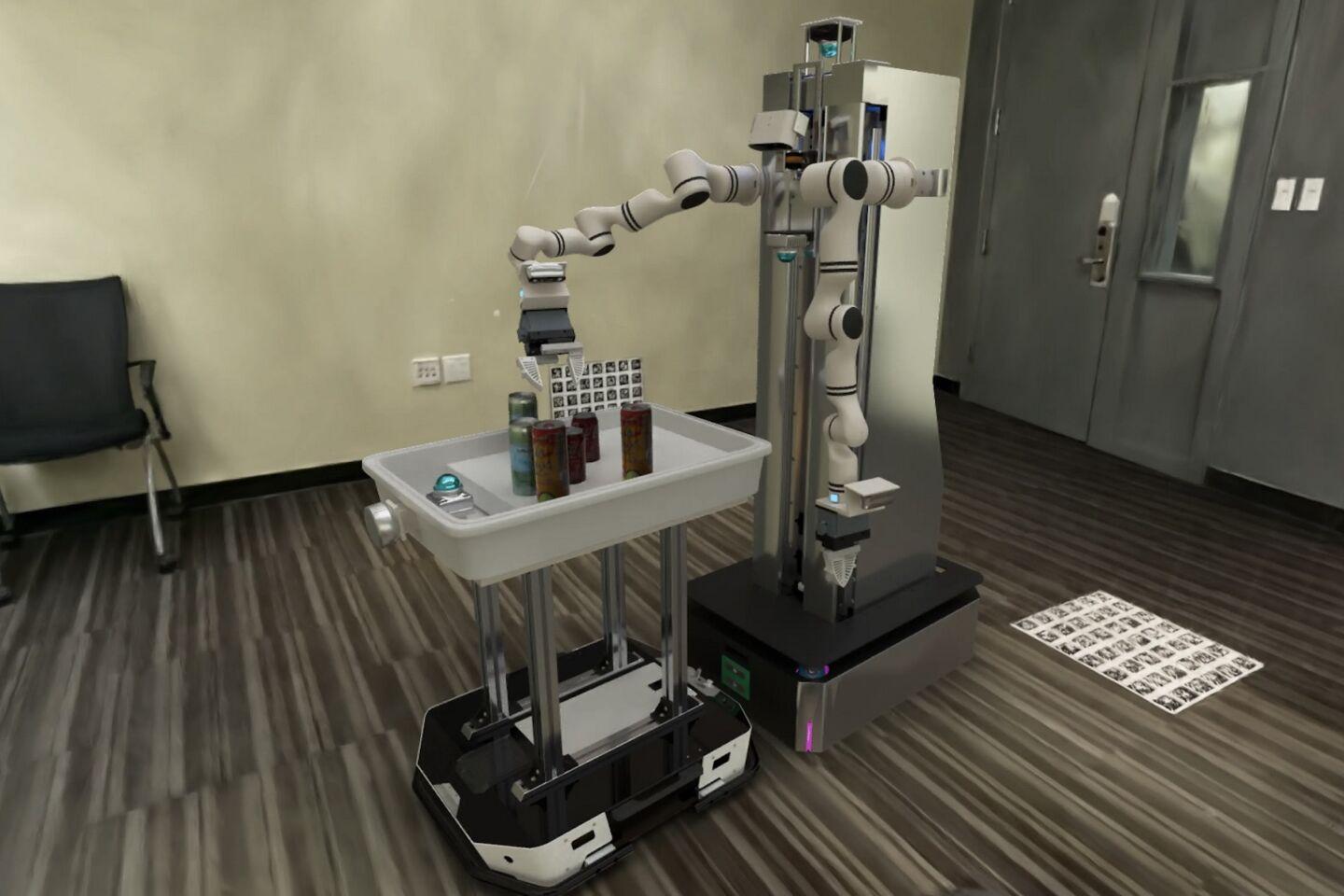The “Year of the Robot” is coming

This past October, Tesla showcased its latest humanoid robot, Optimus, at the “We, Robot” event, sparking widespread discussion and ushering in the “Year of the Robot.” Despite this, reports later clarified that some of the robot’s movements still require human remote control, suggesting that the current pace of robot development has not yet lived up to people’s expectations.
AI has already demonstrated capabilities that surpass human abilities in many professional fields, including passing complex tests, solving mathematical problems, and even replacing some white-collar jobs. However, actions that are simple enough for a four-year-old, such as holding a pen or carefully handling an egg, still pose major challenges for robots.
Now, a new research direction in the field of robotics—Embodied AI (AI with a “body”)—offers the potential to address these problems.
Traditional robot training relies on preset rules and instructions that allow robots to complete tasks. As a result, robots can be trained to quickly perform repetitive actions but have difficulty adjusting to unfamiliar tasks and environmental changes. For example, a traditional robot can move to a designated location based on its programming, but if it encounters obstacles or new tasks, it often fails to adapt accordingly.
In contrast, Embodied AI emphasizes “learning” capabilities by gradually modifying behavior through its perception of the environment, much like how children learn. For instance, if a robot is being trained to pick up a cup from a table, it will first use its camera to identify the cup’s position. If it fails to pick up the cup on the first attempt, it will adjust the force and angle of its grip based on its tactile sensors until it succeeds.
This “learning by doing” approach allows Embodied AI to quickly adapt to environmental changes, making it more flexible than traditional robots. Given future opportunities to handle various complex and dynamic scenarios, it has the potential to autonomously learn new tasks, representing a significant step toward realizing more “intelligent” general-purpose robots.
Despite this, a large amount of training data is still needed for robots to develop human-like “reasoning” and “adaptation” capabilities. Take ChatGPT as an example: it can achieve reasoning-like effects by relying on vast amounts of language data obtained from the internet. However, interactive training data available for robots is still relatively scarce, resulting in slower development.
It is estimated that ChatGPT was trained on roughly 400 billion characters of text, while the image generation model Midjourney used about 6 billion sets of image and text training data. Comparatively, the current open-source database launched by DeepMind contains only around 2.4 million data points, far from enough to train a sufficiently intelligent general-purpose robot.
To address this challenge, some startups have sought out novel solutions. Hillbot is one such example. It uses 3D simulation technology to generate virtual scenarios, enabling robots to “learn” how to respond to complex situations within a virtual environment.

Imagine you want to train a robot to arrange chairs of different shapes. The Hillbot team simply inputs basic text commands to generate tens of thousands of chairs with different designs, helping the robot master a wide range of scenarios. If you need to familiarize the robot with a specific location, such as a coffee shop or warehouse, Hillbot can also take photos of the site and convert them into a 3D virtual model, providing the robot with a realistic environment where it can practice its operations.
Robots are yet to have their “ChatGPT moment,” but as the technology continues to mature, we will witness their gradual transition from industry and service contexts into everyday family life. One day, robots will become a part of our daily environment, and perhaps our most familiar companions.
 Matt Cheng is Founder and General Partner of Cherubic Ventures. Matt is a Taiwanese venture investor, serial entrepreneur, company advisor, and former junior tennis player. Prior to founding Cherubic, Matt co-founded Tian-Ge in China and 91APP in Taiwan, both went public at over $1B+ in market cap. Matt is also a company advisor to Wish and Atomic VC, as well as an early investor in Flexport, Calm, and Hims & Hers.
Matt Cheng is Founder and General Partner of Cherubic Ventures. Matt is a Taiwanese venture investor, serial entrepreneur, company advisor, and former junior tennis player. Prior to founding Cherubic, Matt co-founded Tian-Ge in China and 91APP in Taiwan, both went public at over $1B+ in market cap. Matt is also a company advisor to Wish and Atomic VC, as well as an early investor in Flexport, Calm, and Hims & Hers.
TNGlobal INSIDER publishes contributions relevant to entrepreneurship and innovation. You may submit your own original or published contributions subject to editorial discretion.
#EmbodiedAI #RobotInnovation #FutureTechnology #AIinRobotics #IntelligentMachines #Ifvex
- Art
- Causes
- Crafts
- Dance
- Drinks
- Film
- Fitness
- Food
- Jeux
- Gardening
- Health
- Domicile
- Literature
- Music
- Networking
- Autre
- Party
- Religion
- Shopping
- Sports
- Theater
- Wellness


